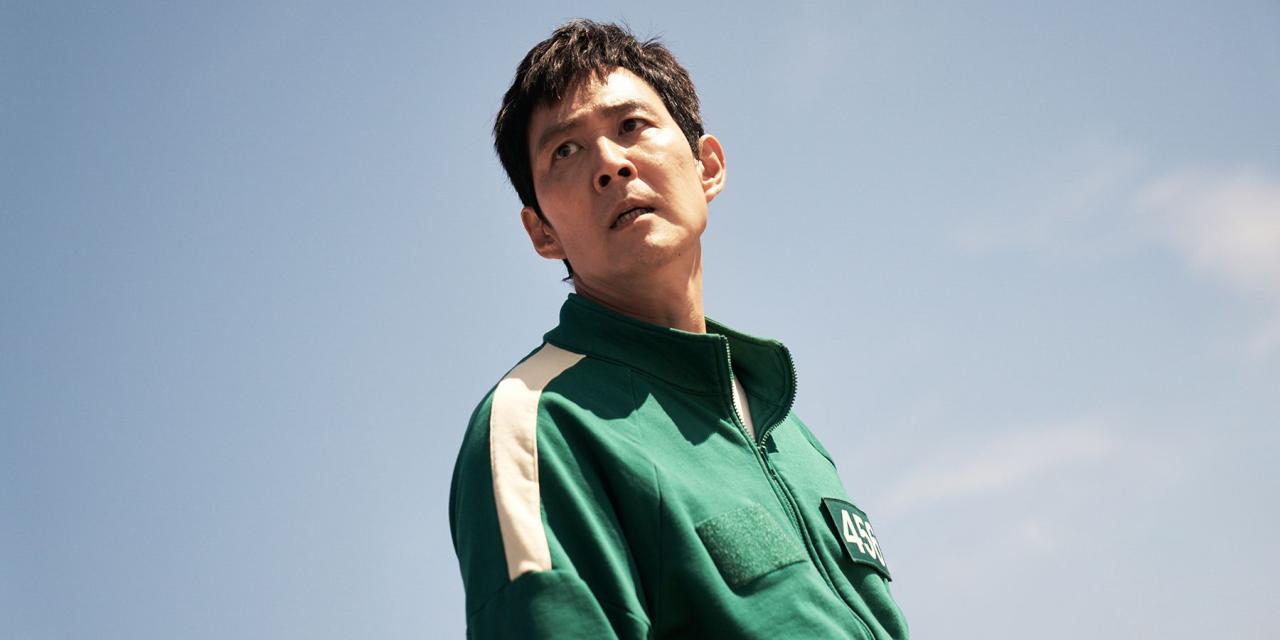Squid Game Histoire Vraie? The hit Netflix show sparked global conversations, but how much of its brutal reality reflects the harsh realities of South Korean society? This exploration delves into the socioeconomic pressures, the allure of high-stakes competition, and the stark portrayal of class inequality woven into the show’s narrative. We’ll compare the fictional world of Squid Game to the actual struggles faced by many in South Korea, examining the show’s impact and its unsettling resonance with real-world issues.
We’ll analyze the show’s visual style, its commentary on debt and social stratification, and its surprisingly accurate reflection of certain aspects of South Korean life. We’ll also look at the global reception of Squid Game and discuss how its themes have struck a chord with international audiences. Get ready to examine the captivating blend of fiction and reality that makes Squid Game such a compelling and thought-provoking series.
The Reality of Debt in South Korea
South Korea’s economic miracle has cast a long shadow, revealing a stark contrast between national prosperity and widespread personal financial struggles. The seemingly idyllic “Korean Dream” often masks a harsh reality for many citizens burdened by crippling debt. This section explores the complex socioeconomic factors driving this crisis and compares the fictionalized debt portrayal in “Squid Game” to the lived experiences of South Koreans.
Socioeconomic Factors Contributing to High Debt Levels, Squid game histoire vraie
Several interconnected factors contribute to South Korea’s high personal debt levels. Intense societal pressure to achieve educational and career success often leads individuals to incur substantial student loan debt and high-cost private tutoring expenses. The highly competitive job market, coupled with a rigid hierarchical structure, can make financial stability elusive for many, particularly younger generations. Additionally, easy access to credit, coupled with aggressive marketing tactics by financial institutions, has fueled a culture of consumerism and overspending, further exacerbating debt problems.
Furthermore, the lack of robust social safety nets, especially for those facing job loss or unexpected medical expenses, leaves many vulnerable to financial ruin.
So you’re wondering about “Squid Game histoire vraie”? While the show’s fictional, its themes of desperation resonate with real-world struggles. Think about the scale of those games; it’s a stark contrast to the amazing spectacle of the shanghai new year drone show , a breathtaking display of technology and artistry. The contrast highlights how entertainment can both reflect harsh realities and offer dazzling escapes from them, making the “Squid Game histoire vraie” question even more thought-provoking.
Societal Pressure and the “Korean Dream”
The “Korean Dream,” a deeply ingrained cultural aspiration emphasizing educational achievement, career success, and homeownership, places immense pressure on individuals to maintain a certain lifestyle. This often translates into substantial financial strain, as individuals strive to meet societal expectations, even if it means taking on considerable debt. The emphasis on outward appearances and conformity further intensifies the pressure, making it difficult for individuals to openly acknowledge or address their financial difficulties.
Real-Life Debt Struggles of South Koreans
Many South Koreans, especially those in vulnerable populations such as the elderly, low-income families, and individuals with disabilities, face severe financial hardship due to overwhelming debt. Examples include individuals forced to sell their homes or rely on high-interest loan sharks due to medical emergencies or job losses. The stigma associated with debt often prevents individuals from seeking help, leading to a cycle of escalating financial problems.
Comparing “Squid Game” Debt Portrayal with Reality
“Squid Game” dramatically portrays the desperation of individuals driven to extreme measures by insurmountable debt. While the show’s depiction is heightened for dramatic effect, it reflects the very real anxieties and pressures faced by many South Koreans struggling under the weight of financial obligations. The show’s exaggeration underscores the seriousness of the issue and the devastating consequences of unchecked debt.
Survival Games and Reality TV: Parallels and Differences
The global popularity of survival-themed reality TV shows highlights a fascination with high-stakes competition and the human response to extreme pressure. This section compares and contrasts the fictional “Squid Game” with real-world reality TV, exploring the ethical considerations and psychological impact of such programs.
Popularity and Appeal of Survival-Themed Reality TV
The enduring appeal of survival-themed reality TV stems from several factors. Viewers are drawn to the spectacle of human resilience and strategic thinking under pressure. The voyeuristic element of witnessing individuals compete for limited resources and survival also contributes to the shows’ popularity. Furthermore, these shows often tap into universal themes of competition, cooperation, and betrayal, providing engaging narratives that resonate with diverse audiences.
Game Mechanics and Ethical Considerations

While “Squid Game” takes the concept to a deadly extreme, many reality TV shows incorporate similar elements of competition, elimination, and strategic alliances. However, the ethical considerations differ significantly. Reality TV shows, while often demanding, typically prioritize the physical and psychological well-being of participants, albeit with varying degrees of success. “Squid Game’s” lethal consequences highlight the inherent dangers of pushing human competition to its absolute limits.
Psychological Impact of High-Stakes Competitions
Participating in high-stakes competitions, whether fictional or real, can have profound psychological effects. The intense pressure, constant threat of elimination, and potential for humiliation can lead to stress, anxiety, and even post-traumatic stress disorder. The isolation and lack of support can further exacerbate these effects. The emotional toll on participants in both fictional and real-world scenarios underscores the importance of ethical considerations and robust support systems.
Ethical Concerns Surrounding Exploitation
Ethical concerns arise regarding the potential exploitation of vulnerable individuals in reality TV productions. The pursuit of ratings and dramatic narratives can sometimes overshadow the well-being of participants, particularly those who are financially or emotionally disadvantaged. The lack of adequate psychological support and the potential for long-term psychological damage raise significant ethical questions about the responsibility of producers and broadcasters.
So, you’re curious about “Squid Game histoire vraie”? While the show’s fictional, the desperation it depicts is real. Think about the lengths people go to for survival; imagine needing to explore underwater wreckage for resources, a task easily aided by tech like the magura v5 sea drone. This powerful tool could drastically alter survival scenarios, highlighting the stark contrast between the game’s brutal reality and the potential for innovative solutions in real-world crises, bringing us back to the harsh realities explored in “Squid Game histoire vraie”.
Social Commentary and Class Inequality
“Squid Game” serves as a powerful critique of social inequality and class stratification in South Korea and beyond. This section analyzes the show’s social commentary and compares its depiction of class struggles with real-world statistics.
Social Commentary on Class Inequality

“Squid Game” vividly portrays the stark realities of class inequality in South Korea. The games themselves symbolize the systemic disadvantages faced by the lower class, who are forced to compete for survival under unfair and rigged conditions. The show highlights the systemic issues that trap individuals in cycles of poverty and desperation, with little opportunity for social mobility.
Real-World Social Issues Reflected in the Show
The show reflects several real-world social issues prevalent in South Korea and other societies grappling with widening income inequality. These include the crushing weight of debt, the lack of social safety nets, the prevalence of precarious employment, and the limited access to quality education and healthcare for low-income individuals. The show’s depiction of systemic corruption and the indifference of the wealthy elite further exacerbates these issues.
Struggles of the Lower Class and Systemic Disadvantages
The show masterfully depicts the struggles of the lower class, highlighting their desperation, resilience, and the systemic disadvantages they face. The characters’ backgrounds reveal a complex tapestry of hardship, including unemployment, debt, gambling addiction, and family crises. Their participation in the deadly games reflects a desperate attempt to escape their precarious circumstances, showcasing the lack of viable alternatives within the existing system.
Comparison of Fictional and Actual Social Inequality
| Aspect | “Squid Game” Fictional Representation | Actual Statistics/Reports (Illustrative Examples) |
|---|---|---|
| Income Inequality | Vast disparity between the ultra-wealthy and the impoverished players. | South Korea’s Gini coefficient consistently ranks high among OECD countries, indicating significant income inequality. Reports show a widening gap between the rich and poor. |
| Debt Burden | Players heavily indebted, facing dire consequences if they fail. | High household debt levels in South Korea are a significant economic concern. Many households struggle with overwhelming debt burdens. |
| Access to Resources | Unequal access to resources and opportunities within the games. | Disparities in access to education, healthcare, and other essential resources exist in South Korea. |
| Social Mobility | Limited social mobility depicted for the lower-class characters. | Studies indicate relatively low social mobility in South Korea, making it difficult for individuals to improve their socioeconomic status. |
The Visual Language of “Squid Game”
The visual style of “Squid Game” significantly contributes to its overall impact and narrative. This section analyzes the show’s visual language, exploring its use of color, symbolism, and key scenes.
Visual Style and Color Palette
The show employs a stark and vibrant color palette, contrasting the bright, almost childish colors of the game sets with the muted tones of the players’ everyday lives. This juxtaposition visually represents the juxtaposition of hope and despair, innocence and brutality. The recurring use of primary colors in the games creates a sense of artificiality and heightened reality, while the drab colors of the players’ surroundings emphasize their bleak circumstances.
Visual Metaphors Enhancing Themes
The visual metaphors throughout the show effectively enhance its themes. The stark contrast between the vibrant game sets and the drab living quarters of the players visually emphasizes the disparity between the artificial world of the games and the harsh realities of their lives. The use of recurring symbols, such as the doll in the “Red Light, Green Light” game, visually represents the manipulative nature of the games and the systemic forces that control the players’ fates.
Analysis of a Key Scene
The “Red Light, Green Light” game is a visually striking example of the show’s aesthetic. The vast, open space, filled with hundreds of players, creates a sense of overwhelming scale and vulnerability. The imposing figure of the giant doll, its sudden movements, and the stark contrast between the bright colors of the game and the players’ desperate struggles, create a chilling atmosphere of suspense and impending doom.
The slow, deliberate movements of the players, contrasted with the doll’s sudden actions, create a powerful visual metaphor for the systemic oppression and the players’ desperate attempts to survive.
Key Visual Motifs and Symbols
Several key visual motifs and symbols recur throughout the show, adding layers of meaning to the narrative. These include the vibrant colors of the games, the imposing figures of the guards, the recurring imagery of violence and death, and the contrasting environments of the opulent game sets and the impoverished living quarters of the players. These visual elements contribute to the overall atmosphere of suspense, violence, and social commentary.
Global Impact and Cultural Reception

“Squid Game” achieved unprecedented global popularity, sparking discussions and interpretations across diverse cultural contexts. This section explores the show’s worldwide impact and cultural reception.
So you’re into the “Squid Game histoire vraie” debate? It’s fascinating how real-life desperation can mirror the show’s themes. Thinking about intense competition and high stakes, it makes you wonder about the rules and regulations governing other high-risk activities, like the new drone rules in Canada, which you can check out here: new drone rules canada.
It’s a different kind of pressure, but the parallels to the survival aspects of “Squid Game histoire vraie” are interesting to consider.
Global Popularity and Cultural Impact
The show’s global success is undeniable, becoming a cultural phenomenon that transcended geographical boundaries. Its exploration of universal themes such as class inequality, survival, and human nature resonated with audiences worldwide. The show’s popularity led to increased conversations about social justice issues and economic disparities on a global scale.
Reception in Different Countries
While generally well-received globally, the show’s reception varied across different countries. In some cultures, the show’s violent content sparked debates about its appropriateness, while in others, the social commentary resonated deeply with audiences experiencing similar economic and social challenges. Cultural nuances influenced interpretations of the show’s themes and its overall impact.
Influence on Popular Culture
“Squid Game” has significantly influenced popular culture, inspiring numerous parodies, memes, and fashion trends. The show’s distinctive visual elements, such as the green tracksuits and the dalgona candy game, became instantly recognizable symbols, permeating various forms of media and social interactions. The show’s influence extended beyond entertainment, prompting discussions about social issues and prompting creative interpretations in various art forms.
Resonance with Global Audiences
The show’s themes resonate with global audiences because they tap into universal human experiences. The struggles of the characters, their desperation, and their resilience in the face of adversity are relatable across different cultural contexts. The show’s exploration of human nature, both the good and the bad, resonates with audiences regardless of their background, fostering global discussions about social issues and the human condition.
Closing Notes: Squid Game Histoire Vraie
Ultimately, “Squid Game Histoire Vraie” isn’t just about a fictional show; it’s a mirror reflecting complex societal issues. While the games are exaggerated for dramatic effect, the underlying themes of debt, inequality, and the desperation of those struggling to survive resonate powerfully. By understanding the real-world context, we gain a deeper appreciation for the show’s impact and the important conversations it has sparked about economic disparity and social justice, both in South Korea and globally.
FAQ Resource
Was Squid Game inspired by a true story?
No single true story inspired Squid Game, but its themes of debt and social inequality are rooted in real-world issues in South Korea and other countries.
How accurate is the portrayal of debt in South Korea in Squid Game?
While exaggerated for dramatic effect, the show highlights the very real struggles many South Koreans face with high levels of personal debt and societal pressures.
Are there similar real-life survival games?
While not as extreme as in Squid Game, the popularity of reality TV shows with high-stakes competitions reflects a similar fascination with survival and competition.
What is the significance of the show’s visual style?
The vibrant yet unsettling color palette and visual metaphors contribute significantly to the show’s atmosphere, enhancing themes of desperation, hope, and violence.
